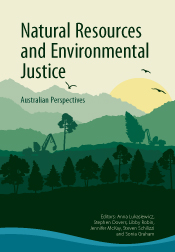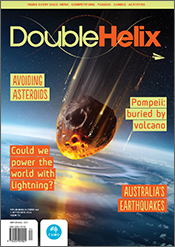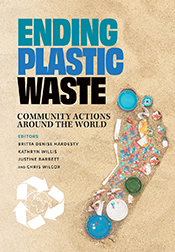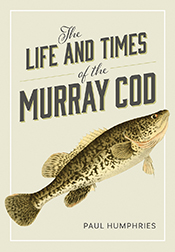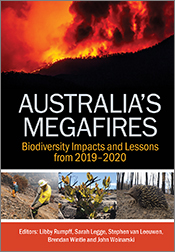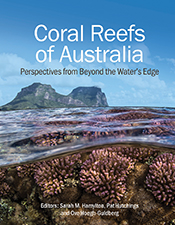Natural Resources and Environmental Justice
Australian Perspectives
Edited by: Anna Lukasiewicz, Stephen Dovers, Libby Robin, Jennifer McKay, Steven Schilizzi, Sonia GrahamA comprehensive examination of justice research on resource, environmental and community issues.
Environmental management involves making decisions about the governance of natural resources such as water, minerals or land, which are inherently decisions about what is just or fair. Yet, there is little emphasis on justice in environmental management research or practical guidance on how to achieve fairness and equity in environmental governance and public policy. This results in social dilemmas that are significant issues for government, business and community agendas, causing conflict between different community interests. + Full description
Natural Resources and Environmental Justice provides the first comprehensive, interdisciplinary examination of justice research in Australian environmental management, identifying best practice and current knowledge gaps. With chapters written by experts in environmental and social sciences, law and economics, this book covers topical issues, including coal seam gas, desalination plants, community relations in mining, forestry negotiations, sea-level rise and animal rights. It also proposes a social justice framework and an agenda for future justice research in environmental management.
These important environmental issues are covered from an Australian perspective and the book will be of broad use to policy makers, researchers and managers in natural resource management and governance, environmental law, social impact and related fields both in Australia and abroad.
- Short descriptionReviews
"With essays ranging from a discussion of what environmental justice actually is, to injustices in water access and animal property rights, this text is filled to the brim with fascinating case studies, each revealing just a little more about a topic that remains largely unexplored by the general public – even those with an interest in the environment."
Rachel Fetherston, Wild Melbourne (blog), 20/7/17
"This book would make a valuable contribution to the bookshelf of any scholar working in the area of natural resource management or environmental justice."
Cristy Clark, Australasian Journal of Environmental Management 25(3), 2018.
Details
Paperback | March 2017 | $ 89.95ISBN: 9781486306374 | 296 pages | 245 x 170 mm
Publisher: CSIRO Publishing
Illustrations
ePDF | March 2017
ISBN: 9781486306381
Publisher: CSIRO Publishing
Available from eRetailers
ePUB | March 2017
ISBN: 9781486306398
Publisher: CSIRO Publishing
Available from eRetailers
Features
- First interdisciplinary examination of justice research and best practice in Australian environmental management
- Case studies covering highly topical issues
- Expert contributions from practising scientists, land resource managers, economists, lawyers, historians and social scientists
Contents
AcknowledgementsPreface
List of contributors
1. Environment and Justice: Defining the Field
PART 1: CONTEXT AND CONCEPTS
2. A history of global ideas about environmental justice
3. Justice Research in Practice: How can it influence environmental policy and planning?
4. Methods and methodologies in justice research
PART 2: FROM THE GROUND UP
5. Australian urban water supply-examining the implementation of public interest in desalination delivery
6. Company-community relations in the mining context: A relational justice perspective
7. Accounting for justice in local government responses to sea-level rise: evidence from two local councils in Victoria, Australia
8. Exploring the justice in forestry negotiations: trading justice for politics
PART 3: LENSES INTO JUSTICE
9. Enduring and persistent injustices in water access in Australia
10. Animal property rights: justice or conservation?
11. Justice in water resource management
12. Legal determinations, geography and justice in Australia’s coal seam gas debate
13. The justice implications of focusing on the economically efficient use of natural resources and environmental impacts
PART 4: THE WAY FORWARD
14. Politics of innovation working for and against justice
15. How can environmental justice be assessed when different stakeholders disagree on justice principles? A practical solution
16. Australian jurisprudence of justice in water management: present limitations, future issues and law reform suggestions
17. The Social Justice Framework: Untangling the Maze of Justice Complexities
18. Exploring environmental justice and public policy
19. Current status and future prospects for justice research in environmental management
Index
View the full table of contents.
Authors
Anna Lukasiewicz is associated with the Fenner School of Environment and Society at the Australian National University. With an interdisciplinary background focusing on sustainability, Anna has been developing the Social Justice Framework, an empirically-grounded guide incorporating justice and fairness into environmental and natural resource management.
Stephen Dovers is a Professor and the Director of the Fenner School of Environment and Society at the Australian National University. He focuses on generic policy and institutional dimensions in environment and sustainability, combining contemporary and historical perspectives across a diverse range of sectors, most of which represent environmental dilemmas with strong justice conflicts.
Libby Robin is a Professor in the Fenner School of Environment and Society at the Australian National University, and affiliated professor of KTH Stockholm and the National Museum of Australia. She is a historian of environmental ideas who has worked in interdisciplinary environmental studies since 1999. Libby’s current project works with museums to give voice to communities facing the effects of global warming.
Jennifer McKay is a Professor of Business Law, University of South Australia, and an Adjunct Professor of environmental and water resources law at the University of Lincoln, UK. She has researched and taught on water law and justice issues in Australia relating to drought and floods and in India and in the US (Fulbright senior scholar UC Berkeley) and holds several Ministerial appointments.
Steven Schilizzi is an Associate Professor at the School of Agricultural and Resource Economics at the University of Western Australia. His expertise is mainly in environmental and resource economics, but his background also includes social psychology, anthropology and (ancient and modern) philosophy. One of his research topics is equity (distributive justice) in resource allocation.
Sonia Graham is a Lecturer in social research and policy in the School of Social Sciences at University of New South Wales. Her research seeks to understand the ways in which environmental policies affect people, focusing on concepts such as collective action, trust, power, fairness, legitimacy and values.

